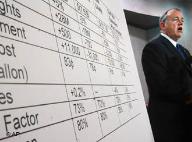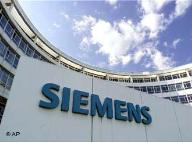Germany Considers Tighter CEO Laws
The Siemens bribery scandal has caused the German government to consider forbidding retired CEOs from moving over to head their companies' supervisory boards, according to a report released this week.
In an effort to prevent the abuse of power among top chief executive officers, the German government has proposed putting limits on what they can do after retirement. In Germany, departing CEOs often take over leadership of their companies' supervisory boards.
Germany's Christian Democratic Union (CDU) and its coalition partner, the Social Democrats (SPD) have already reached an agreement on the supervisory board issue, according to the Handelsblatt newspaper.

A management board member should not hold a seat on his company's own supervisory board for five years after his contract as CEO has expired, Michael Fuchs, the economics affairs spokesman for the CDU told Handelsblatt.
Siemens scandal causes changes
For CEOs of German blue-chip companies listed on the elite DAX 30 index, heading up the supervisory board after retirement remains a common practice, despite possible conflicts of interest. Yet the ongoing Siemens scandal has caused the German government to look for ways to tighten up corporate governance laws.
Siemens has become a prime example of the cozy relationship between CEOs and their supervisory boards. Heinrich von Pierer, the former CEO of the German engineering company Siemens, moved directly to the company's supervisory board when he retired as CEO in January, 2005.
Siemens is under investigation for the possible embezzlement of 200 million euros ($260 million) that was allegedly transferred to overseas funds and used as bribe money. So far, von Pierer has not been directly implicated in the bribery scandal, but the investigation could stretch back to when he was CEO.

